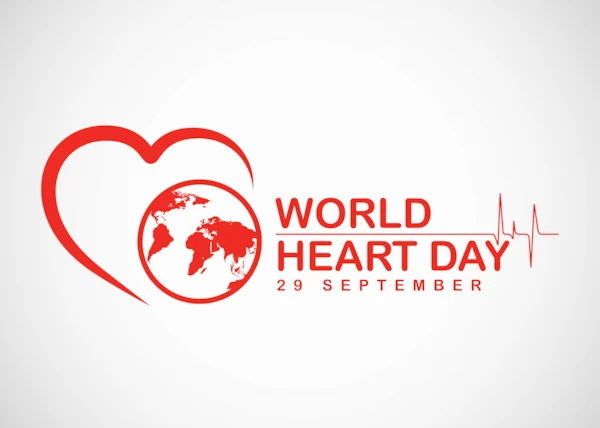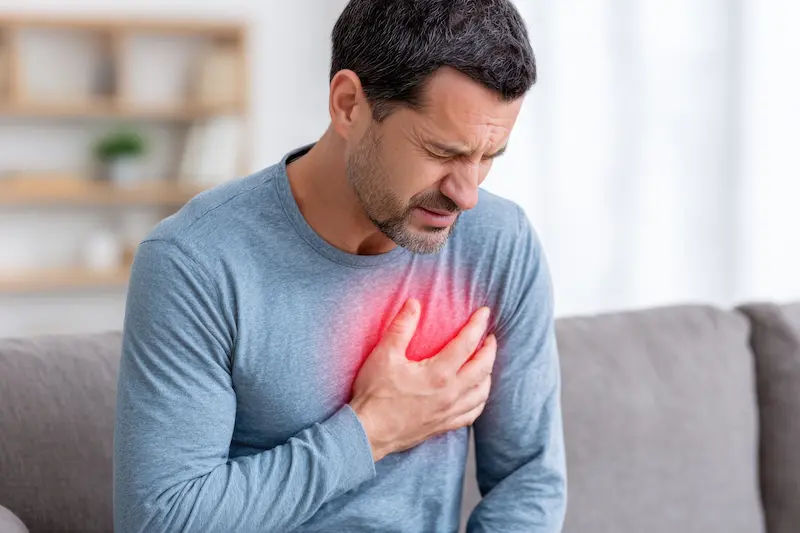- Male
- 29 Years
- 20/02/2025
I'm a bit worried about my ECG report that mentions 'mild ST depressions in the inferolateral leads.' Is this something serious that I need to be concerned about? Can it be fixed or managed in some way? I'm not really sure what it means and would love some guidance.
Answered by 1 Apollo Doctors
Mild ST depressions in the inferolateral leads on an ECG can indicate underlying issues such as myocardial ischemia (reduced blood flow to the heart muscle), which can be a cause for concern. It's important to follow up with your cardiologist for a comprehensive evaluation to determine the exact cause. They may recommend further tests such as an echocardiogram, stress test, or coronary angiography to assess the severity and plan appropriate treatment. Management may include lifestyle changes, medications, or procedures to improve blood flow to the heart. Please discuss these findings with your healthcare provider for personalized advice and treatment.
Dr. Ibrahim Suggests...
Consult a Cardiologist
Answered 04/07/2025
0
0

Ask Apollo
AI powered Health Chatbot
-
Concern Level
- Mild ST depressions can indicate ischemia or other cardiac issues. It's important to consult a cardiologist for a detailed evaluation.
-
Management Steps
a. Schedule a follow-up with your healthcare provider.
b. Discuss potential lifestyle changes, such as diet and exercise.
c. Consider further tests like a stress test or echocardiogram if recommended. -
Immediate Actions
- Monitor for symptoms like chest pain or shortness of breath and seek immediate care if they occur.
Answered 10/09/2025
0
0

More Cardiology Health Queries
View allI'm really worried about my dad. He's 68 and the doctors said he has an enlarged heart. His heart rate is just 20 right now, and he had bypass surgery 4 years ago. There haven't been any problems recently, but after an echo test, they noticed his heart has gotten bigger. What should we do next?
Enlarged heart, also known as cardiomegaly, can be a serious condition, especially in individuals with a history of heart surgery like your father. A heart rate of 20 beats per minute is extremely low and can be life-threatening. It is important to seek immediate medical attention in such cases. In this situation, your father may need a pacemaker to regulate his heart rate and prevent complications. Additionally, medications such as Metoprolol or Carvedilol can be prescribed to help manage his heart condition and prevent further enlargement of the heart. The dosage will depend on his specific health status and needs, so it is important to consult with a healthcare provider for proper evaluation and treatment.
Answered by 1 Apollo Doctors
My dad had bypass surgery back in 2000 and has been on meds since then. He's 60 now and after a recent health check, the doctor said his heart is working at 30% and recommended an angio. What exactly happens during an angio and what should we do next to improve his health?
An angio (angiography) is a procedure using X-rays to visualize blood vessels and identify blockages or narrowing. To improve his health, your dad should focus on a heart-healthy lifestyle, including a balanced diet, regular exercise, stress management, and quitting smoking if he smokes. He should also continue taking his prescribed medications as directed.
Answered by 1 Apollo Doctors
I'm 33 and my blood pressure is 120100is that normal, or should I be worried about it? Can you help me figure this out, doctor?
Your blood pressure (120100 mmHg) is slightly elevated, indicating prehypertension. Consult a doctor to assess your overall health and develop a plan to manage blood pressure. Lifestyle changes may include: Lifestyle Modifications 1. Regular exercise (30 minutesday) 2. Balanced diet (low sodium, high fiber) 3. Stress management (meditation, yoga) 4. Adequate sleep (7-8 hoursnight) 5. Weight management (if overweight) Monitoring 1. Regular blood pressure checks 2. Blood lipid profiles 3. Blood glucose tests When to Seek Immediate Medical Attention 1. BP >14090 mmHg 2. Severe headache, dizziness or chest pain 3. Shortness of breath 4. Confusion or fatigue
Answered by 1 Apollo Doctors
Disclaimer: Answers on Apollo 247 are not intended to replace your doctor advice. Always seek help of a professional doctor in case of an medical emergency or ailment.
 What does mild ST depression in the inferolateral leads mean?
What does mild ST depression in the inferolateral leads mean? 


